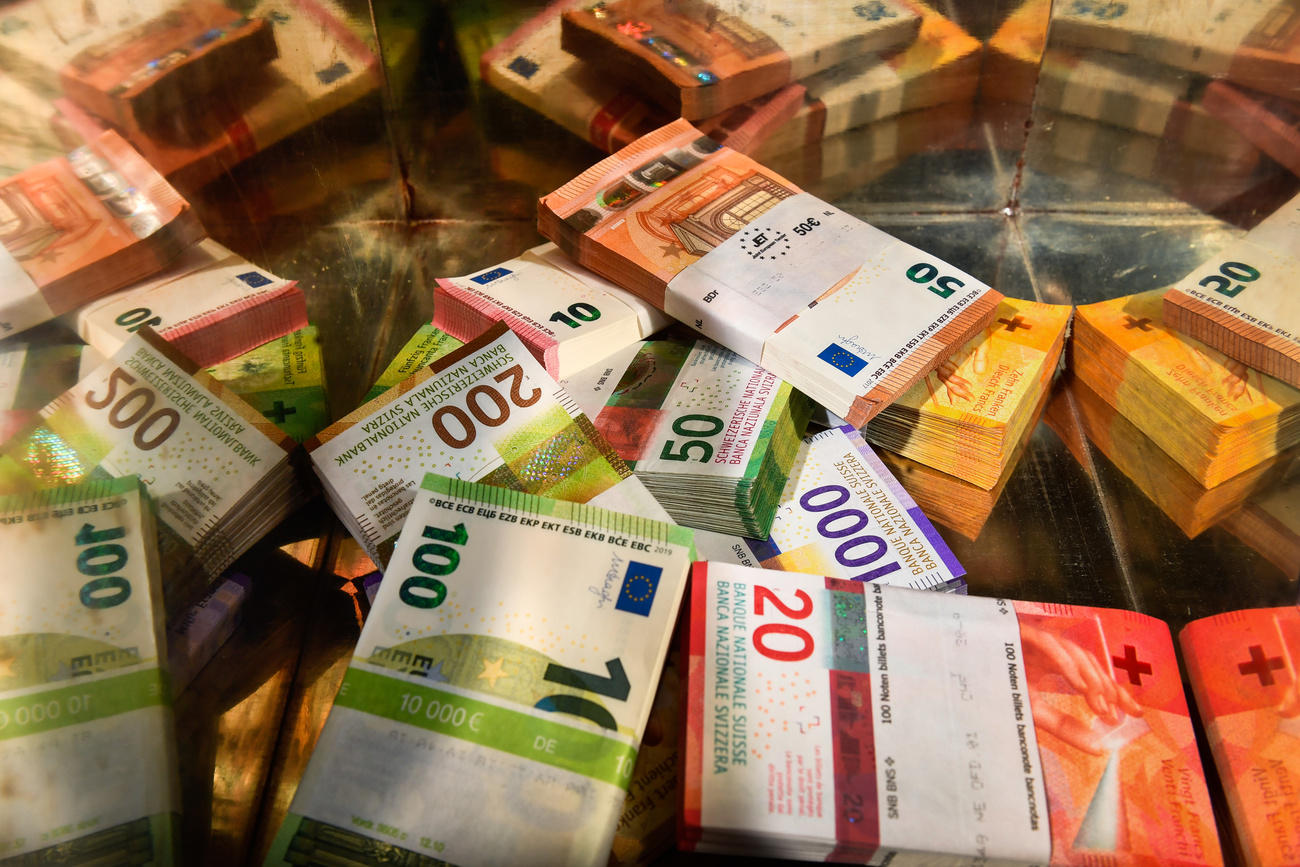
Negative interest rates have cost Swiss banks CHF8 billion

Swiss banks have been forced to fork out CHF8 billion ($8.3 billion) in negative interest fees since the Swiss National Bank (SNB) imposed its policy in 2015. Last year saw the heftiest annual bill of CHF2 billion, according to research from German company Deposit Solutions.
The findings are largely in line with the Swiss Bankers AssociationExternal link(SBA), which says negative interest costs their members around CHF2 billion a year. The SBA has vigorously campaigned against the central bank’s monetary policy stance while commercial banks are increasingly passing on charges to wealthy clients and businesses.
The SNB currently sets interest rates at -0.75% to deter investors from flocking to the franc, which would cause the currency to climb steeply in value. The worry is that this would result in deflation of consumer prices, make Swiss exports less competitive and damage the domestic tourism industry.
Switzerland is not the only country affected by negative interest rates. The European Central Bank (ECB) has progressively reduced interest to -0.5%, hitting EU banks to the tune of €25 billion (CHF27 billion) since 2014.
German banks have faced the largest central bank bill – an accumulated €8 billion (CHF8.6 billion) – followed by their Swiss and French counterparts, says Deposit SolutionsExternal link.
Negative interest is hitting the profits of Swiss banks noticeably harder than their European counterparts, according to the study. The charges amount to 13.1% of Swiss banking pre-tax profits, compared to a Eurozone average of 5.6%, according to these calculations.
How it works
High street banks park client deposits at their respective central banks in the form of “sight deposits”. Regulations force banks to hold so-called “minimum reserves”, a percentage of customer money set aside to ensure that withdrawal demands can be honoured.
In times of economic stress, people tend to save more and turn to the safe haven franc in order to protect the value of their assets. This results in sight deposits swelling to higher amounts.
The SNB charges negative interest when these accumulated funds pass a certain threshold. This used to be 20 times the value of a bank’s minimum reserves, but the SNB raised the bar to 25x in November. This has provided some relief by exempting a greater proportion of sight deposits from negative interest charges.
The SBA believes this move will shave the bill down to around CHF1 billion this year.
But the central bank has also warned that its negative interest rate policy could stick around for some time to come, and could even go lower.

In compliance with the JTI standards
More: SWI swissinfo.ch certified by the Journalism Trust Initiative































You can find an overview of ongoing debates with our journalists here . Please join us!
If you want to start a conversation about a topic raised in this article or want to report factual errors, email us at english@swissinfo.ch.